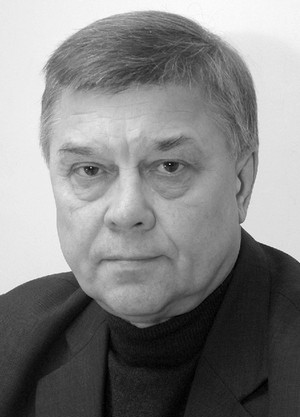Structural and dynamic characteristics of students’ value attitude toward introduction of All-Russian Ready for Labour and Defence Sport Complex
Фотографии:
ˑ:
Teoriya i praktika fizicheskoy kultury №6 2016, pp. 30-32
UDC 796.011
Dr.Hab. A.A. Pashin1
Postgraduate A.M. Vasilyeva1
1Penza State University, Penza
e-mail: ffkpqpu@mail.ru
Analysis of structural and dynamic characteristics of the students’ value attitude toward the introduction of the Russian Ready for Labour and Defence Physical Culture and Sport Complex (RLD) is given in the paper. Objective of the research was to examine the structure of strength of students’ value attitude toward the introduction of the RLD Complex, its change in the attitude development from the lowest to the highest level, and to define the strategy of pedagogical influence in the formation of the value attitude toward the RLD Complex on this basis. The concept of person’s subjective attitudes was used as a methodological basis of the research, according to which the actions and deeds of a person are due to his current system of subjective attitudes toward the objects and phenomena of the world, ensuring productivity of any activity. The average strength of the students’ attitude toward the RLD Complex, its structure in the groups with low, average and high-level attitudes are defined on the basis of empirical data. Comparative analysis of these indicators revealed dominant components in the attitude structure that contribute to emotional, cognitive and practical attitudes, made it possible to establish regularities in the dynamics of perceptual-affective, cognitive, practical and action components of the value attitude toward the RLD Complex and develop a strategy for pedagogical influences on its formation.
Keywords: value attitude toward Russian Ready for Labour and Defence Sport Complex (RLD), components of value attitude.
References
- Bekhterev V.M. Lichnost i usloviya ee razvitiya i zdorovya (Personality and conditions of its development and health) / V.M. Bekhterev. – St. Petersburg: SPb. un-ty pub. h-se, 1905. – 110 p.
- Deryabo S. Otnoshenie k zdorovyu i zdorovomu obrazu zhizni: metodika izmereniya (Health and healthy lifestyle behaviour: evaluation methods) / S. Deryabo, S. Yasvin // Direktor shkoly. –1999. – № 3. – P. 7–16.
- Ilyin E.P. Motivatsiya i motivy (Motivation and motives) / E.P. Ilyin. – St. Petersburg: Piter. 2006. – P. 512.
- Lubysheva L.I. Sotsiologiya fizicheskoy kultury i sporta: ucheb. posobie (Sociology of physical culture and sport; study guide) / L.I. Lubysheva. – 2nd ed., ster. – Moscow: Akademiya, 2004. – 240 p.
- Myasishchev V.N. Lichnost i nevrozy (Personality and neuroses) / V.N. Myasishchev. – Leningrad: LSU pub. h-se, 1960. – 224 p.
- Pashin A.A. Potrebnosti i motivyi zdorovogo obraza zhizni studencheskoy molodezhi (Healthy lifestyle needs and motives of students) / A.A. Pashin, A.M. Vasil'eva, V.F. Mukhamedzhanova // Izvestiya vysshikh uchebnykh zavedeniy. Povolzhskiy region. Gumanitarnye nauki. Pedagogika. – 2014. – № 4. – P. 219–227.
- Stolyarov V.I. Sotsiologiya fizicheskoy kulturyi i sporta: uchebnik (Sociology of physical culture and sports: textbook) / V.I. Stolyarov. – Moscow: Flinta: Nauka, 2004. – 400 p.
- Uznadze D.N. Psikhologicheskie issledovaniya (Psychological studies) / D.N. Uznadze. Moscow: Nauka, 1966. – 452 p.
- Rokeach M. The Nature of Human Values. – NY.: Free Press, 1973. – 438 p.
Received 11.01.2016 г.




 Журнал "THEORY AND PRACTICE
Журнал "THEORY AND PRACTICE